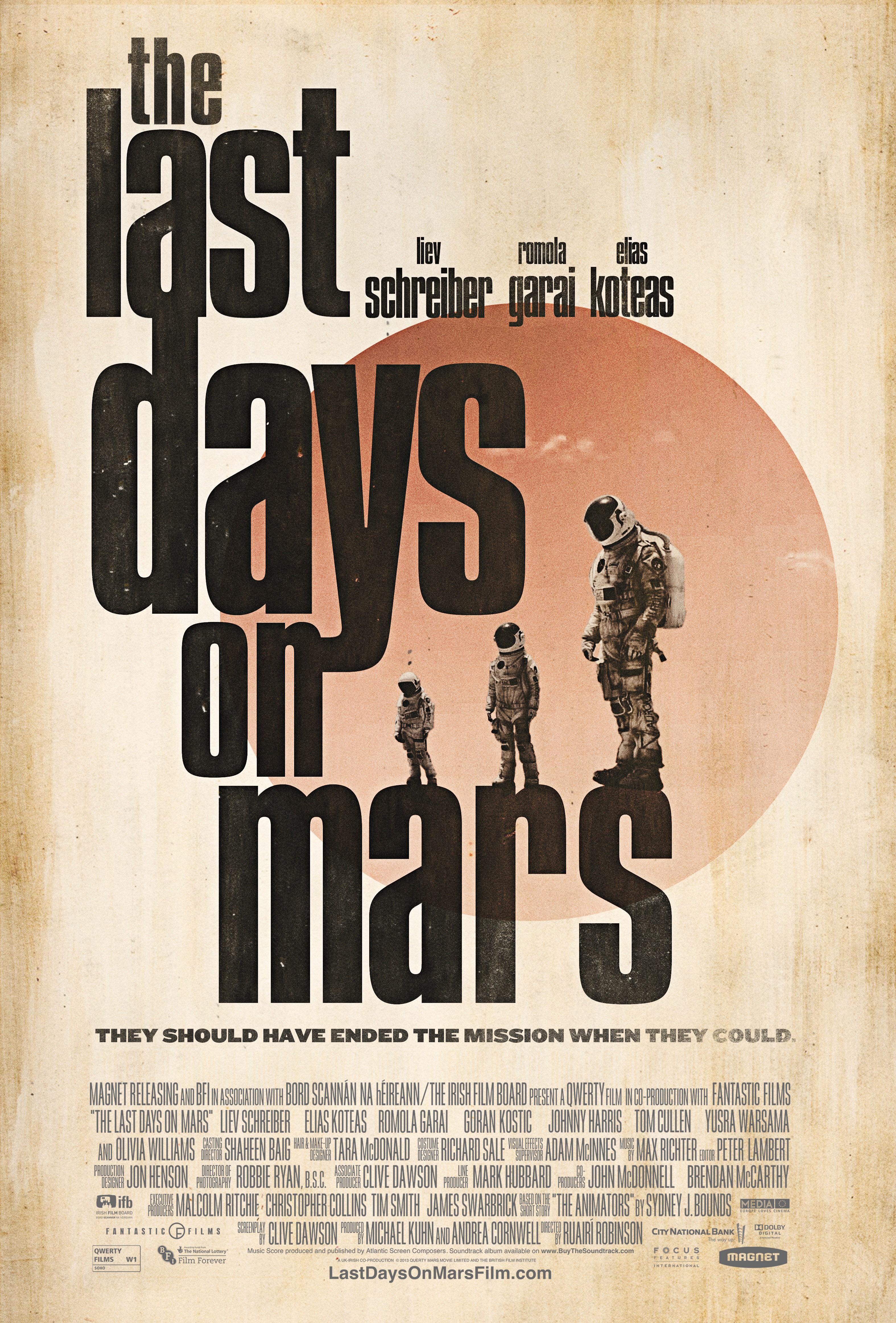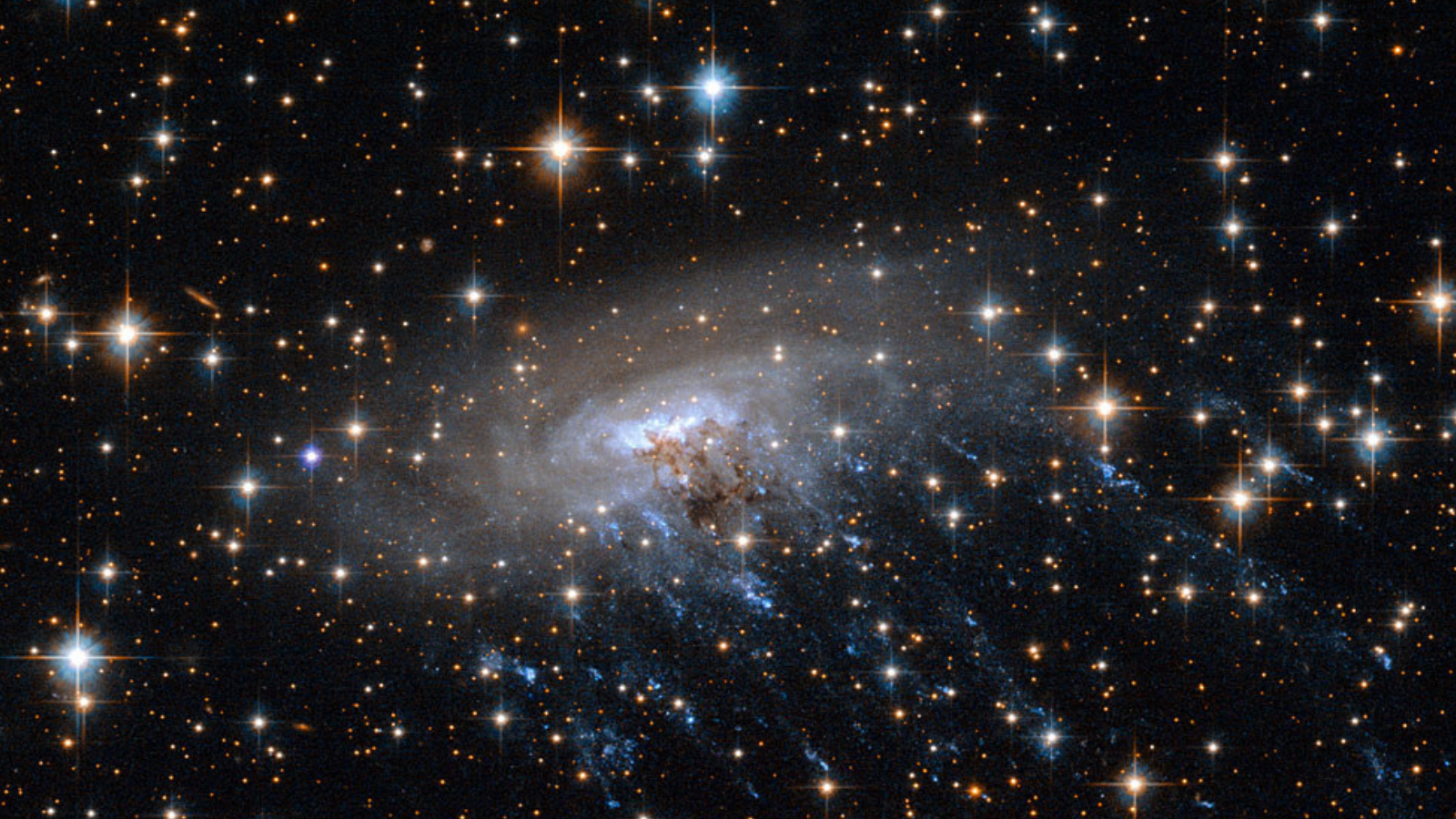'The Last Days on Mars' Launches On Earth Today: Exclusive Poster
Breaking space news, the latest updates on rocket launches, skywatching events and more!
You are now subscribed
Your newsletter sign-up was successful
Want to add more newsletters?

Delivered daily
Daily Newsletter
Breaking space news, the latest updates on rocket launches, skywatching events and more!

Once a month
Watch This Space
Sign up to our monthly entertainment newsletter to keep up with all our coverage of the latest sci-fi and space movies, tv shows, games and books.

Once a week
Night Sky This Week
Discover this week's must-see night sky events, moon phases, and stunning astrophotos. Sign up for our skywatching newsletter and explore the universe with us!

Twice a month
Strange New Words
Space.com's Sci-Fi Reader's Club. Read a sci-fi short story every month and join a virtual community of fellow science fiction fans!
A new science-fiction movie follows an ill-fated astronaut crew on the Red Planet, and you can watch it online today (Oct. 31).
"The Last Days on Mars" premieres in theaters in the United States on Dec. 6, but it is available streaming through video on demand services today (Oct. 31). The new movie, starring Liev Schreiber, follows astronauts on an ill-fated mission to the Red Planet.
A new poster for the movie captures an eerie feeling of isolation and the desert-like environment of Mars that the filmmakers aim to produce in the film.
"One of the things we started talking about when I became involved was 'how do you articulate that claustrophobia? How do you express something as complex as his sort of anxiety?'" Schreiber said in a statement. "Being trapped, in a space station, in close quarters, in spacesuit … all of it contributed to this oppressive, suffocating thing that was really interesting to explore."
Schreiber and the other astronauts in the movie are in their last moments on Mars when things go awry. In the movie's trailer, two astronauts fall into a pit when they are off the base, and find something they don't expect. According to one Mars explorer in the movie, whatever is in the pit is "definitely alive."
"It’s not a straight horror film," director Ruairi Robinson said in a statement. "There are no cheap shocks. The fear is of mounting dread more than anything else, and so hopefully it’ll be emotional."
The film is based on a Sydney J. Bounds short story called "The Animators."
Breaking space news, the latest updates on rocket launches, skywatching events and more!
"It’s about a chain of events put into play on the very last day of one of the first missions to Mars," producer Andrea Cornwell said in the movie's production notes of the short story. "What is unusual is rather than looking at their arrival on Mars, the story is about a group of people that had been together a long time and looking at the disintegration of the group psychology."
You can find the movie through Amazon.com and other video on demand services.
Follow Miriam Kramer @mirikramer and Google+. Follow us @Spacedotcom, Facebook and Google+. Original article on SPACE.com.

Miriam Kramer joined Space.com as a Staff Writer in December 2012. Since then, she has floated in weightlessness on a zero-gravity flight, felt the pull of 4-Gs in a trainer aircraft and watched rockets soar into space from Florida and Virginia. She also served as Space.com's lead space entertainment reporter, and enjoys all aspects of space news, astronomy and commercial spaceflight. Miriam has also presented space stories during live interviews with Fox News and other TV and radio outlets. She originally hails from Knoxville, Tennessee where she and her family would take trips to dark spots on the outskirts of town to watch meteor showers every year. She loves to travel and one day hopes to see the northern lights in person. Miriam is currently a space reporter with Axios, writing the Axios Space newsletter. You can follow Miriam on Twitter.

